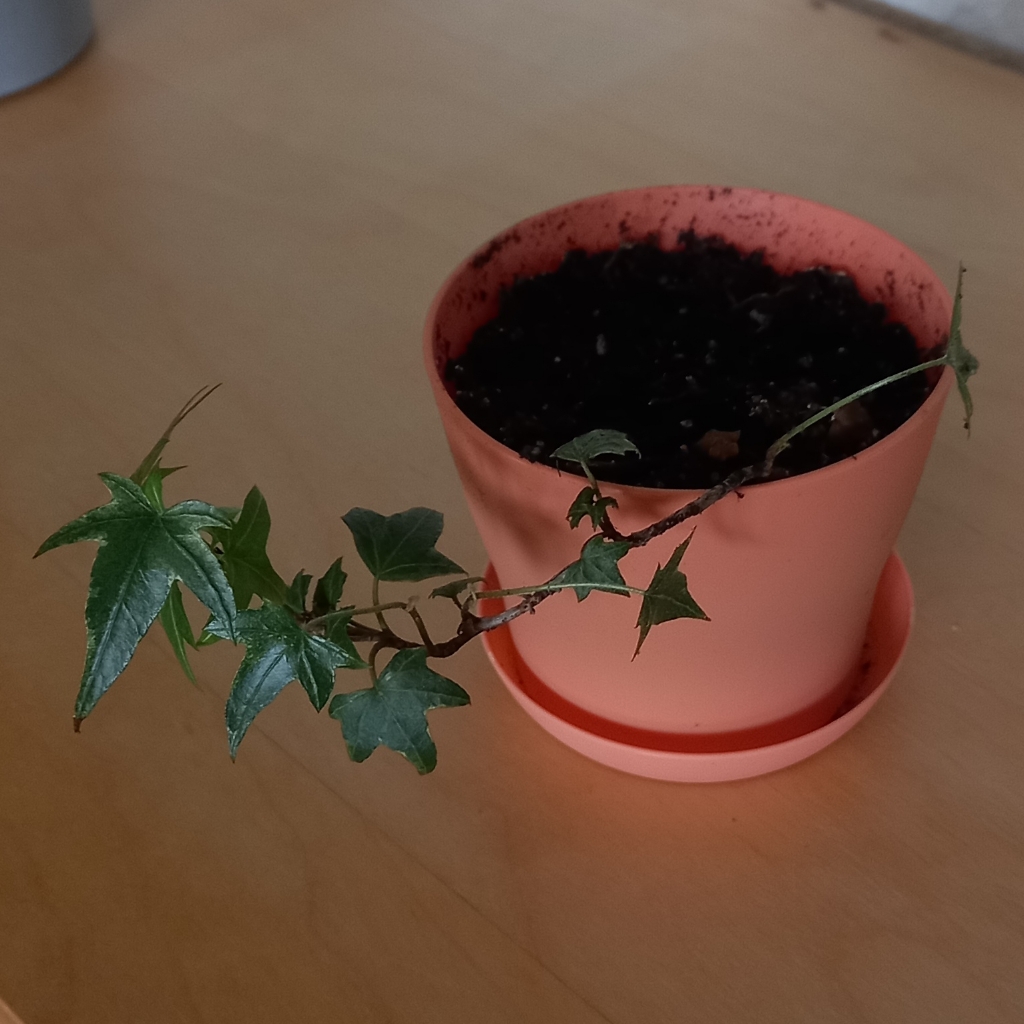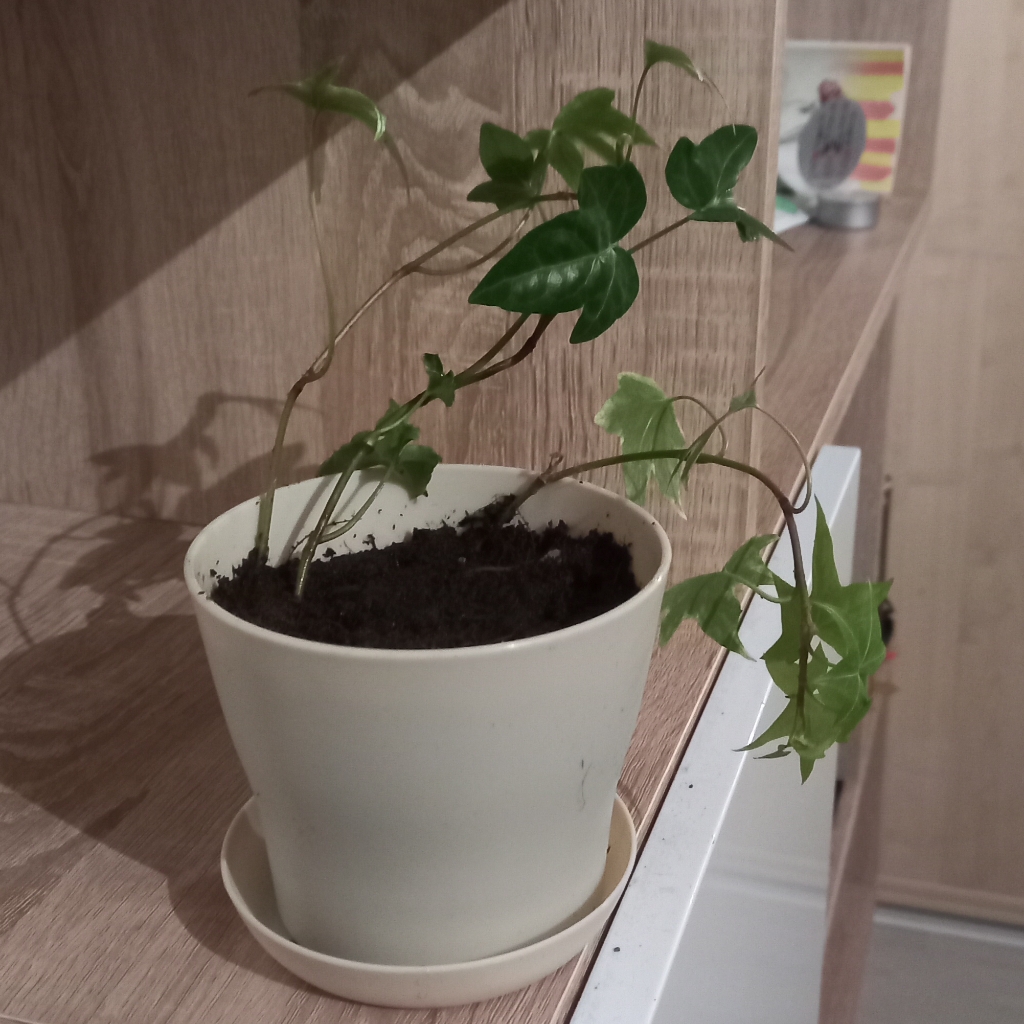How to grow and care for Hedera helix
plant care guide about watering, fertilizing, trimming, repotting, cutting, propagating Hedera helix, European ivy, Ivy
Hedera helix 101 - Plant Care Instructions
Bright direct light
16C° ~20C°
Every 7 days
Growth Observation wiki
💬 Gardener's know-how
Botany Encyclopedia
Genus : Hedera
🔖 Care Tips
Hydroponic cultivation is possible. 1. Carefully remove soil from the roots without damaging them, and secure the roots with something like hydro balls for better growth. 2. Do not submerge the entire root system in water; keep only 50-60% submerged to allow the roots to breathe. 3. Use tap water that has been left out for a day, and store it in an opaque container rather than a transparent one, as light can change the temperature and harm the roots. 4. Change the water regularly every 7-14 days for maintenance.
🏝️ Habitat Conditions
This plant grows in Asia, Europe, and North Africa. It prefers hot and dry weather in summer and warm, humid conditions in winter.
🪨 Soil Mix
When planting, it's best to use well-draining soil. Generally, mix 40% potting soil, 20% bark, 20% leaf mold, 10% perlite, and 10% charcoal. However, you can adjust the ratios based on the situation and environment.
🌡️ Environment
The ideal temperature is 16-20°C, and the plant can tolerate a minimum of 5°C in winter. A humidity level of 40-70% is preferable. Since the plant likes a humid environment, regularly mist it to increase the air humidity. However, during the rainy season, additional misting is unnecessary due to high ambient humidity. Ensure good ventilation to prevent mold growth when humidity is high.
👀 Characteristics details
These plants are all vining. If you want them to grow upwards, install a wall or support. You can also let them hang down as hanging plants. Ivy and Boston ivy are different. Boston ivy changes leaf color in fall and winter, but ivy does not. Boston ivy uses tendrils for support, while ivy uses adhesive roots. Do not confuse them.
☀️ Light
Houseplants thrive best with prolonged exposure to indirect light. While they can grow in low light, strong light results in denser leaves and shorter nodes. Conversely, weak light can cause leaves to spread out and the plant to become leggy. Variegated plants struggle with photosynthesis in their patterned areas, so they benefit from more sunlight. Be cautious, as insufficient light can cause the patterns to fade.
💧 Water
When the surface soil is dry, water the plant thoroughly.
🌱 Propagate
In spring or fall, use sterilized tools to cut a branch with at least one node at an angle. Let it dry for 3-4 hours, then propagate in soil or water. 1. For water propagation, avoid transparent containers. Place the stem in water, and once roots appear, add hydroponic fertilizer. When roots are 5-7 cm long, transfer to soil. 2. For soil propagation, plant deeply in soil without fertilizer. After propagation, avoid exposing the plant to bright light. Gradually increase light exposure to help it adapt to gentle light. Maintain high humidity and keep the temperature between 16-20°C.
🪴 Repot
Repot every 1-2 years in spring due to its relatively fast growth.
💊 Fertilize
Use fertilizer at the recommended amount during the growing season from spring to summer to promote more vigorous growth.
🌺 Flower
Outdoors, you can see flowers, but indoors, it's difficult to see them when grown.
😵 Toxicity
Be cautious with pets and young children as it is toxic.
water
How to water Hedera helix
How often should I water?
check Hedera helix Every 7 days if it needs water when it’s very cold (below 5℃), water less frequently
When do I need to water?
the top 2-3 inches of soil is dry
Light & Location
How much light does a Hedera helix need?

Bright direct light
Bright indirect light
Grow light
Light preference
Hedera helix likes Bright direct light, Bright indirect light, Grow light day. The brighter the space, the better this plant grows.
Check if there’s an optimal place in your house!
This plant prefers
2K ~ 20K lux to thrive!
0
20K~
2K
20K
Temperature
Houseplants
-15
16~20℃
45
Plants that grow in the wild and those that grow indoors prefer different temperatures. If you grow Hedera helix at home, make sure the temperature is 16~20℃.
Humidity
Ideal humidity
0
40~70%
100
Hedera helix prefers humidity about 40~70%. If necessary, increase humidity by misting, humidifier.
Fertilize
Collective Knowhow
When should I fertilize?
Only when your plant is healthy
How frequently should I fertilize?
1-2 times in growing season. A pinch for a small pot.
Characteristic
The taxonomic classification of Hedera helix is as follows. - Kingdom: Plantae, Phylum: Tracheophyta, Class: Magnoliopsida, Order: Apiales, Family: Araliaceae, Genus: Hedera, Species: Hedera helix
| Characteristic Name | Characteristic Value |
|---|---|
| Habitat | Asia |
| Taxonomy Name | Taxonomy Value |
|---|---|
| Phylum | Tracheophyta |
| Class | Magnoliopsida |
| Order | Apiales |
| Family | Araliaceae |
| Genus | Hedera |
| Species | Hedera helix |
Is your plant sick?
Track what happened. We’ll let you know the cause and treatment shortly!





1:1 Expert Help
You’ll get professional feedback within 24 hours from an expert on our team.
feedback will include














